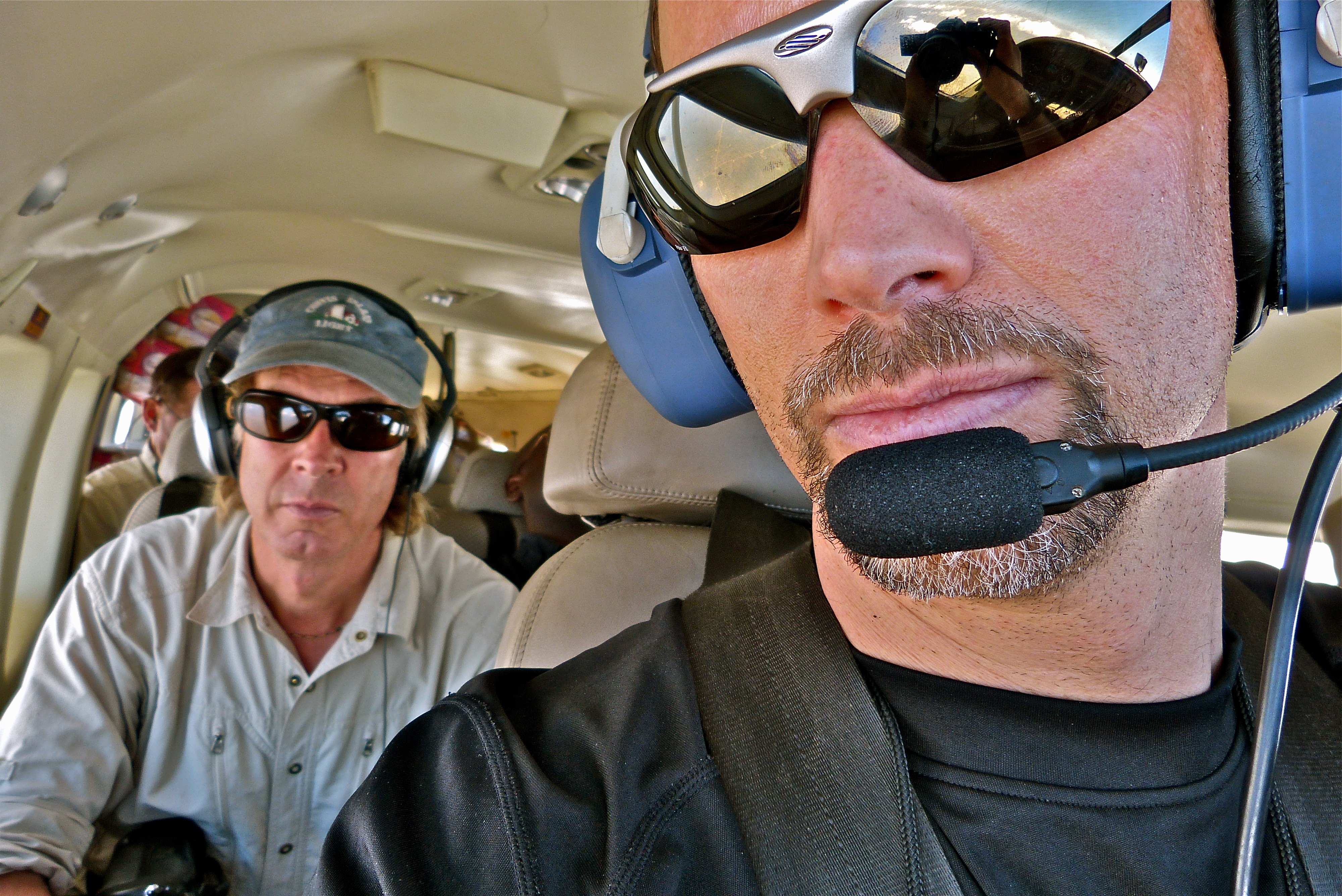
20 May TELLURIDE MOUNTAIN FILM: “DUK COUNTY” PREMIERE
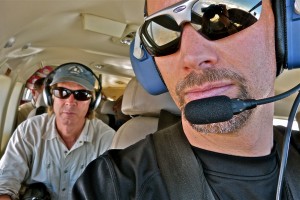
Jordan Campbell, director, with photographer Ace Kvale
These “Lost Boys” never visited NeverNeverland. Their biggest concerns were not pirates and Indians. These “Lost Boys” had way bigger challenges to overcome. They were victims of a war-torn country, who had to survive starvation, dehydration, bomb raids, hungry animals, genocidal murder, to survive and perhaps even find a brighter future.
“The Lost Boys of Sudan” was the name given to the group of about 25,000-30,000 boys and young men displaced and orphaned during the Second Sudanese Civil War, 1983–2005, during which an estimated 2.5 million were killed and millions of others lost their homes. The term for their sorry fraternity was coined in the 1990’s when the boys fled the invading Northern Sudanese Army, ultimately scratching out their existence in refugee camps from Ethiopia to Northern Kenya.
One of the original “Lost Boys” was John Dau. His harrowing story – with its Hollywood ending – was told in the award-winning documentary, “God Grew Tired of Us.” (2006). Also known as Dhieu-Deng Leek, Dau went on to find his purpose as a peacemaker, creating an eponymous foundation, which aims to transform healthcare in South Sudan.
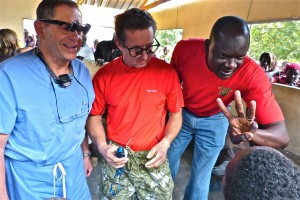
John Dau with Drs. Alan Crandal and Geoff Tabin
John Dau, a giant among men – literally, he is 6’8″ tall – is a poster boy for Mountainfilm in Telluride, embodying the event’s theme: “Celebrating the Indomitable Spirit.” (His work has earned him the respect of his homeland and many kudos, including a National Geographic Emerging Explorers Award.)
Dau and his Duk Lost Boys Clinic are at the center of a new documentary, “Duk County: Peace is in Sight in the New South Sudan,” a 37-minute film about a humanitarian expedition to South Sudan to restore sight to people in his homeland living with preventable blindness.
The world premiere of the film takes place Memorial Weekend, Friday, May 24 – Monday, May 27, at the 35th annual Mountainfilm in Telluride, where the line-up includes a total of about 70 documentaries (plus about 12 films in Kidz Kino and 12 in the adrenaline program).
“Duk County” is a story that takes place in the heart of South Sudan—the world newest country. In addition to chronicling Dau’s remarkable story, the indie-style documentary includes other members of the Mountainfilm tribe: Jordan Campbell, the film’s director, Ace Kvale, an adventure photographer, and renowned cataract surgeon, Dr. Geoff Tabin.
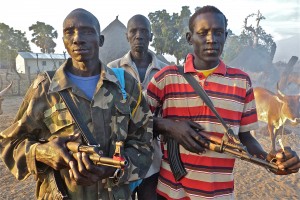
South Sudan police guarding Dau’s clinic as Tabin and Crandall operate.
While in medical school at Harvard, Tabin applied for a leave of absence: he wanted to join a climbing expedition for a first ascent up the East Face of Mount Everest. Instead, a colleague steered him towards a high altitude research project in Nepal. Merging climbing with ophthalmology, Tabin managed to complete medical school and discover his twin callings: curing people with preventable blindness and being the fourth person in the world to climb the Seven Summits. (To date, through his Himalayan Cataract Project, Tabin has managed to deliver eye-care to hundreds of thousands of people with cataracts in Nepal and throughout the Himalayas and Africa.)
In December 2011, Tabin and colleague, Dr. Alan Crandall, went to South Sudan, then and now one of the most dangerous countries in the world, to perform the miracle of sight restoring surgeries at Dau’s Lost Boys clinic. Along for the ride to assist the medical team and report about their adventure was Jordan Campbell.
Campbell, a mountaineer who has been on several Himalayan expeditions since 1992, is director of public relations for Marmot since 2006. He’s also the founder of the nascent Marmot Ambassador Athlete Program, which celebrates the work of various social entrepreneurs. He first began work with Tabin in 2002 after completing a major expedition in Tibet. It was then Campbell’s hair first caught on fire about doing humanitarian relief work and spotlighting Tabin’s life-changing interventions through writing, photography and film work.
Campbell has no formal medical training. At Dau’s clinic, he and Kvale helped screen and attend to patients.
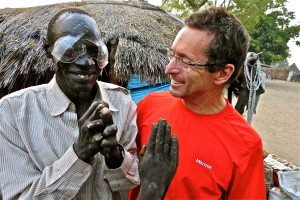
Dr. Geoff Tabin with a leper whose eyes he just saved.
In just five days, the team completed close to 300 surgeries – under the watchful eyes of armed guards. Just days after leaving the Duk County Lost Boys Clinic, a devastating flash of intertribal violence that plagues the new country took place in a village just 150 miles southeast of the clinic. Three thousand people were murdered during the massacre. Later the horror spread back into Duk County and one of the team’s patients, “Lonnie,” was killed.
“I was very upset by this incident, which I followed closely through the BBC ,” explained Jordan. “The massacre was actually the impetus for me to make a documentary. I was conflicted with polarizing emotions….we had initiated so much good in the region only to see it descend into a severe tribal conflict. In the end, I wanted to make a film about Tabin, Crandall and Dau’s pioneering work, yes, but I also felt audiences needed to understand more about South Sudan’s significant challenges….”
For a preview, watch the trailer:
Marmot Presents: DUK COUNTY (2013) Produced by Jordan Campbell & Michael Herbener from Duk County on Vimeo.


Sorry, the comment form is closed at this time.